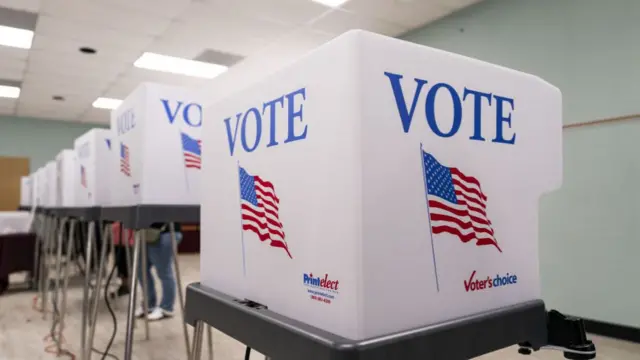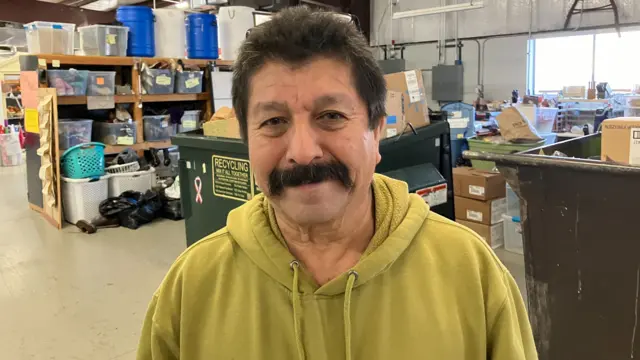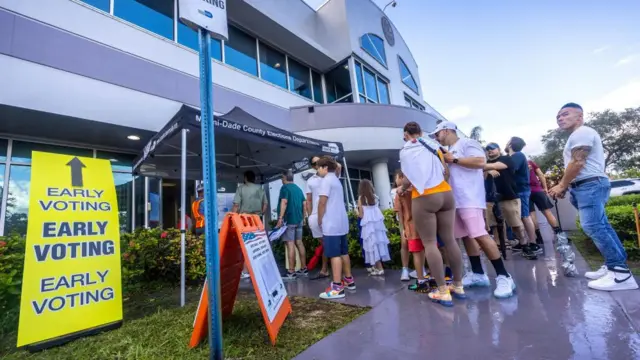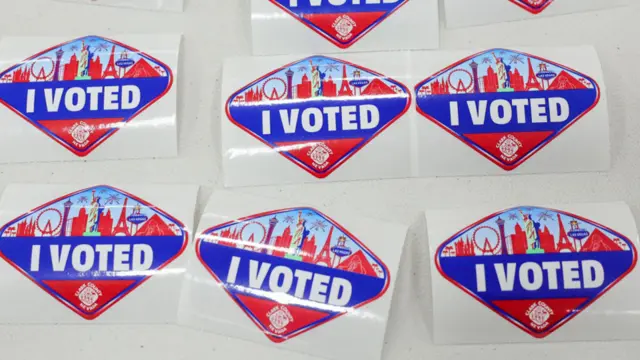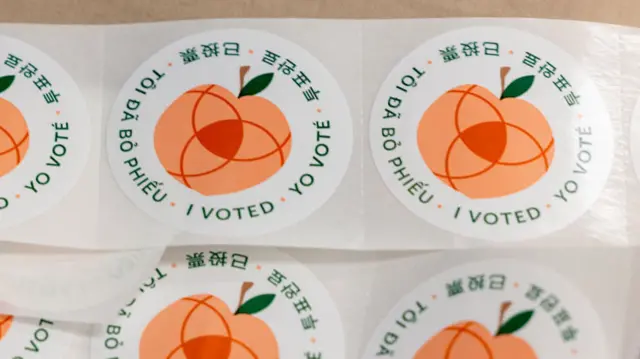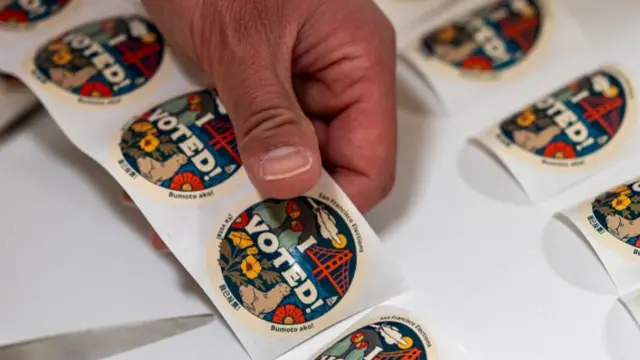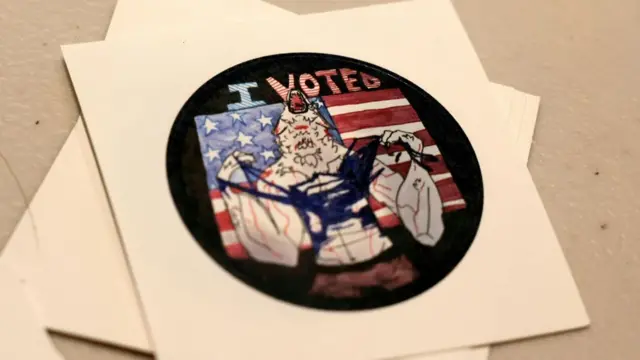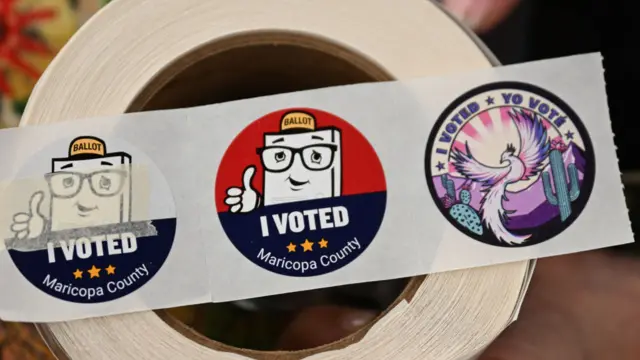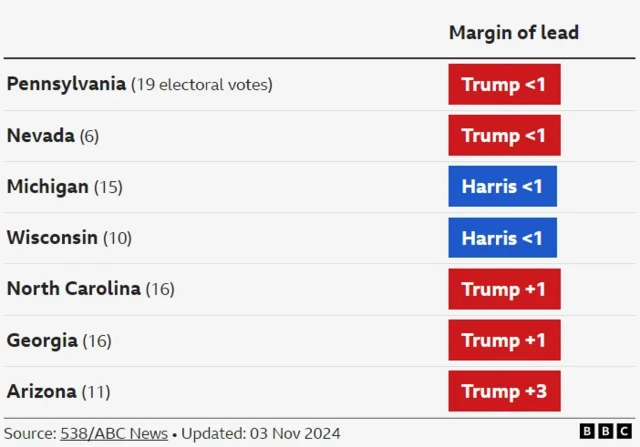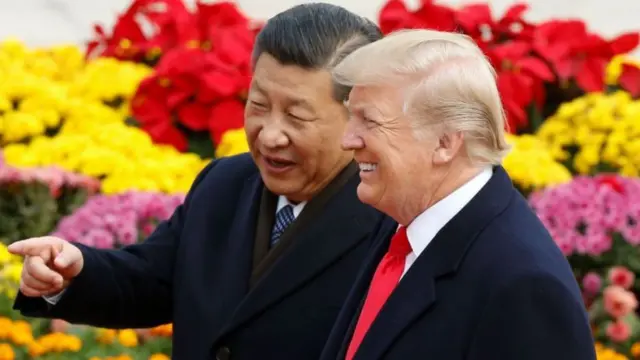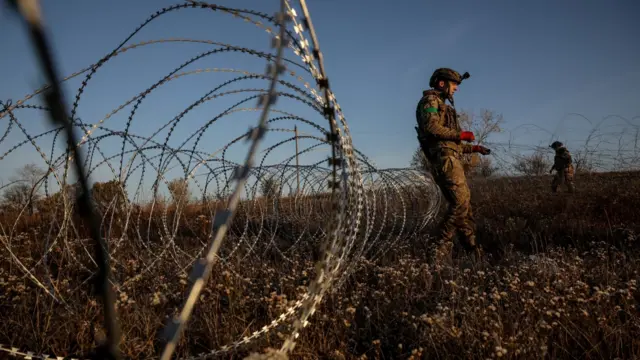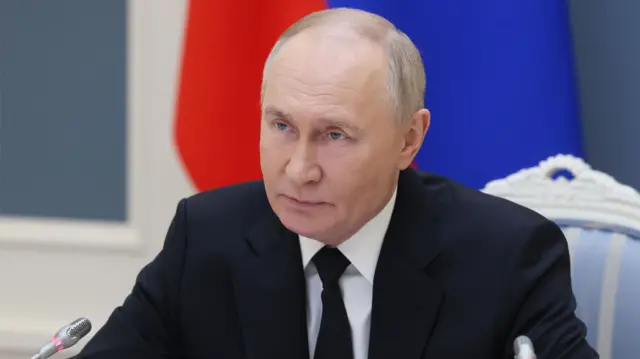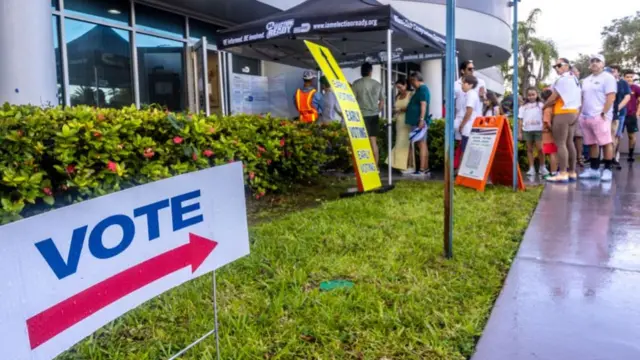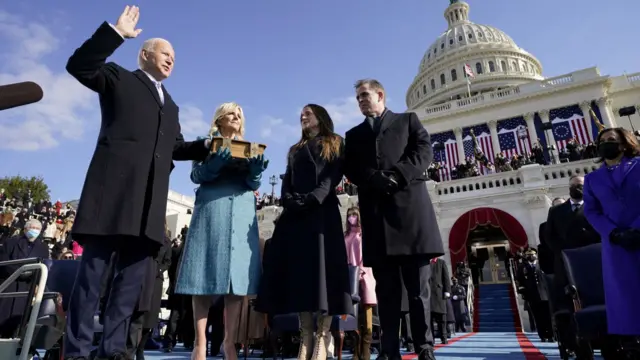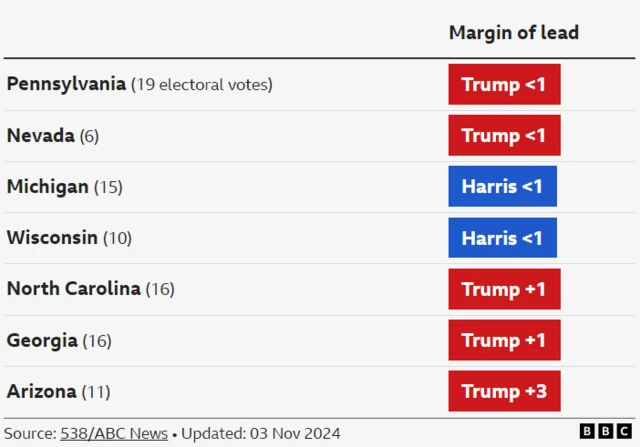Ten reasons why either Trump or Harris might winpublished at 13:35 GMT 4 November 2024
Ben Bevington
BBC News, Washington
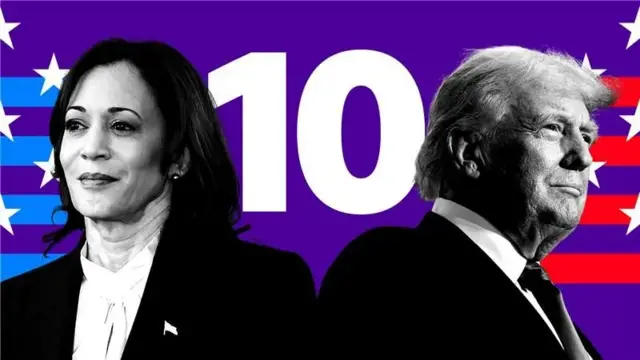
With just one day to go, the race for the White House is deadlocked - both at the national level and in the all-important battleground states.
There is a compelling case to make for why each candidate may have the edge when it comes to building a coalition of voters in the right places, and then ensuring they actually turn out. Let's have a look at some reasons:
Trump could win because... he’s not in power
The economy is the number one issue for voters, and while the stock market is booming, most Americans say they are struggling with higher prices every day.
Inflation hit levels not seen since the 1970s, giving Trump the chance to ask “Are you better off now than you were four years ago?”
Harris may win because... she's championed women's rights
This is the first presidential election since the US Supreme Court overturned Roe v Wade and the constitutional right to an abortion.
Voters concerned about protecting abortion rights overwhelmingly back Harris, and we’ve seen in past elections - notably the 2022 midterms - that the issue can drive turnout and have a real impact on the result.
